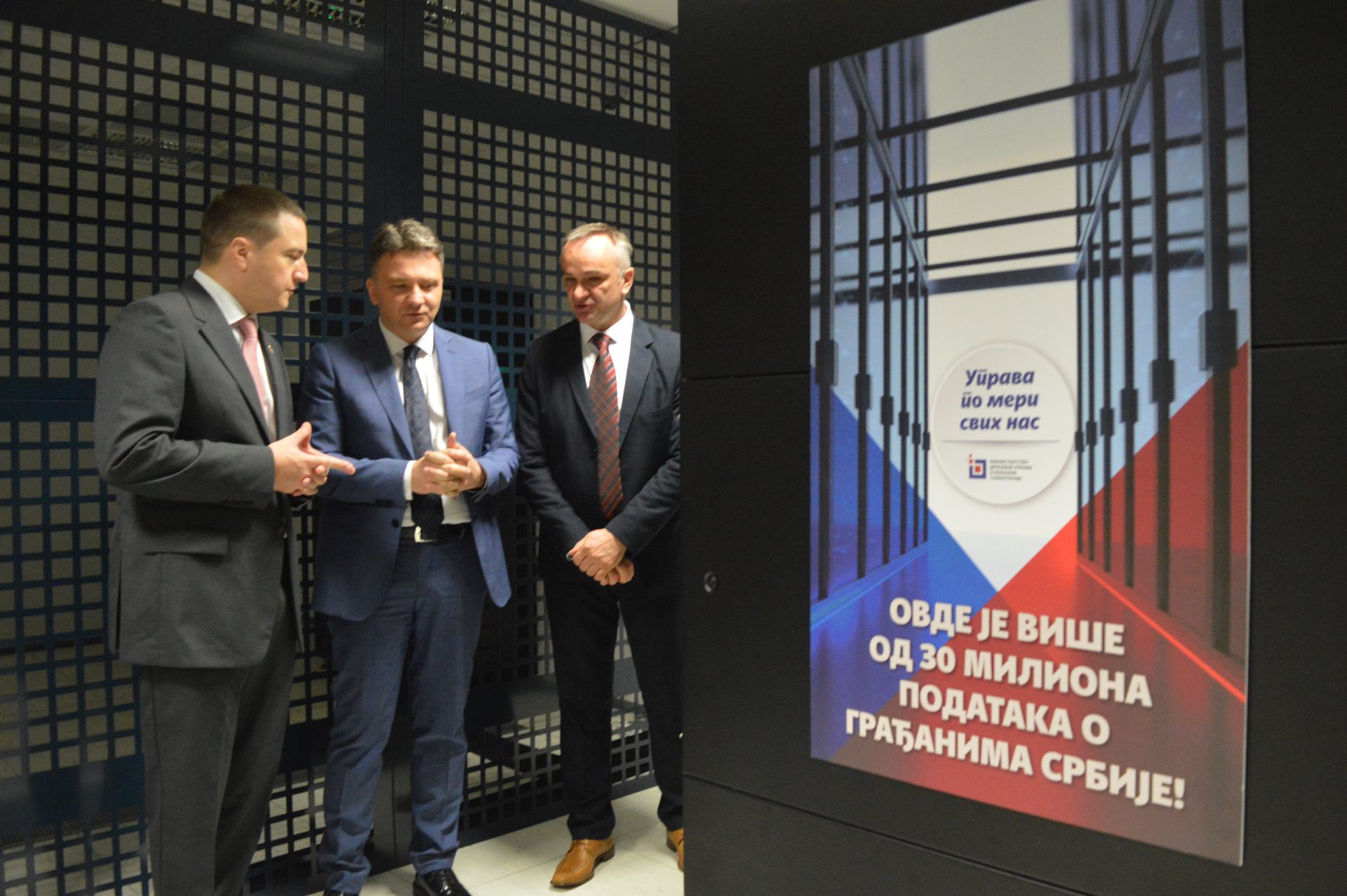
The concept and vision of digitization, designed by Ana Brnabić, is effectively implemented through Government teamwork, which has been demonstrated by the Ministry of Public Administration and Local Self-Government and the IT Office today. New equipment for civil records, which contain more than 30 million data on Serbian citizens, is located in the State Data Center in accordance with the highest technical and security standards. All civil records will be digitized by the end of the year in accordance with the amendments to the Law on Civil Records, adopted by the National Assembly of the Republic of Serbia yesterday, and all local self-government units will work exclusively in the central system, precisely on this equipment. The purchased equipment, financed with RSD 33.6 million from the budget of the Ministry within the project “Stop Bureaucracy”, allows for the improvement of the keeping of the most important records on citizens – Civil Records, or for the establishment of the Repository of Civil Records (of births, marriages and deaths). Minister of Public Administration and Local Self-Government, Branko Ružić estimated that in the field of digitization this is the best task, since this equipment enables officers to quickly and easily use data from these records so that citizens can finish their business with the administration without burdens, stress and waste of time and money. “For citizens this means – no more certificates from these records, unless they themselves want them for personal reasons; rather, authorized officers have access, see all the data from these databases and do not need to ask any citizen to bring any certificate for their inspection”, explained the Minister. He said that, in the forthcoming period, the Record of Citizenship will be included in the Repository of Civil Records so that citizens can get a citizenship certificate anywhere in Serbia, just like they can get a birth certificate today. Talking about the effects of digitization of the work of the administration, the Minister said that the results are already visible. “Only in the first five months of this year 30 percent less birth certificates were printed than in the same period last year. This is a better result than 24 percent in the previous year. This trend suggests that by the end of the year we will have 70-80 percent less paper copies.” Ružić also announced a novelty in terms of digitization that is significant for businessmen. “Since mid-October, through the pilot project, the eInspector the Sanitary, Market, Labor Inspection and Administrative Inspection are starting to work in new software that will integrate all the information from their reports, and the plan is for all the other inspections to begin working this way in May next year. It will be a great relief for the economy, which has assessed the reform of inspections very positively,” the Minister said. The Director of the Office for Information Technologies and Electronic Administration, Mihailo Jovanović said that the joint work and synergy of the Ministry of Public Administration and Local Self-Government and the Office demonstrate the efficiency of electronic administration. He pointed out that citizens’ data in the Data Center are kept in line with the most up-to-date security and quality and service standards, and that the center is very reliable, since electricity is supplied from three independent sources, which enables the Center to operate autonomously even 48 hours.



